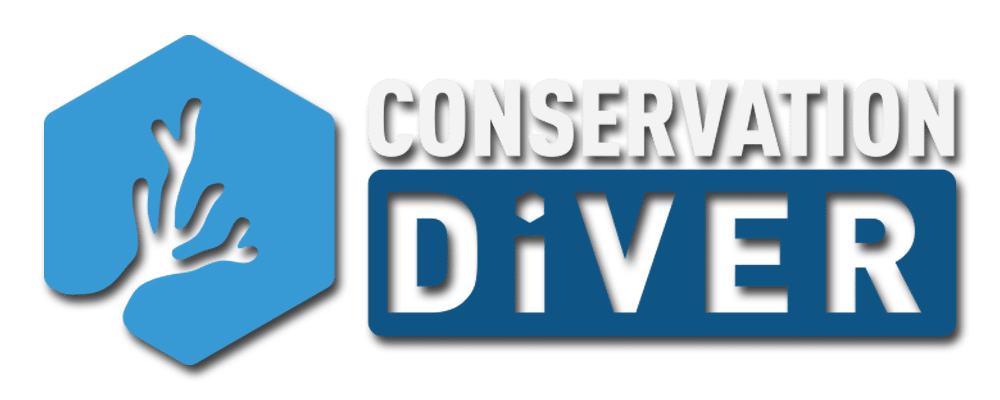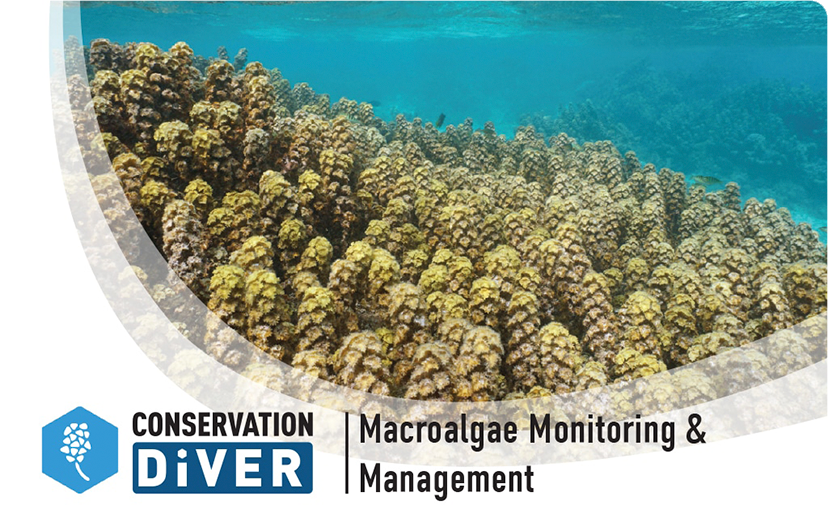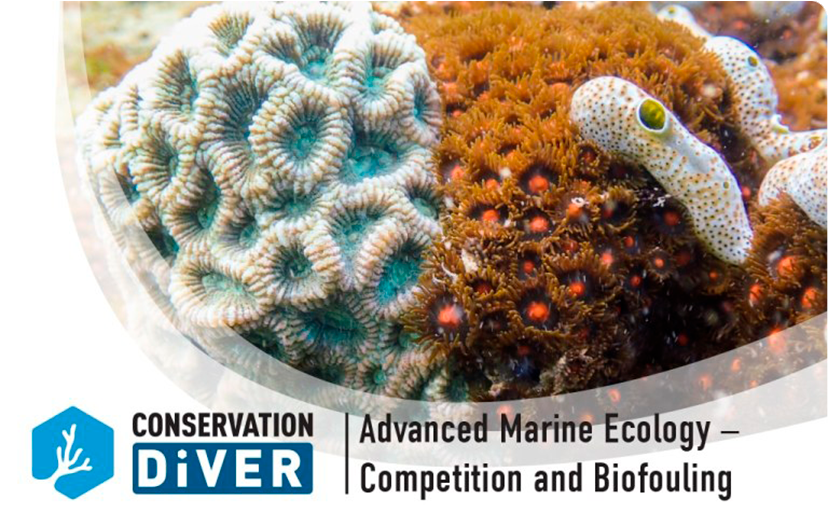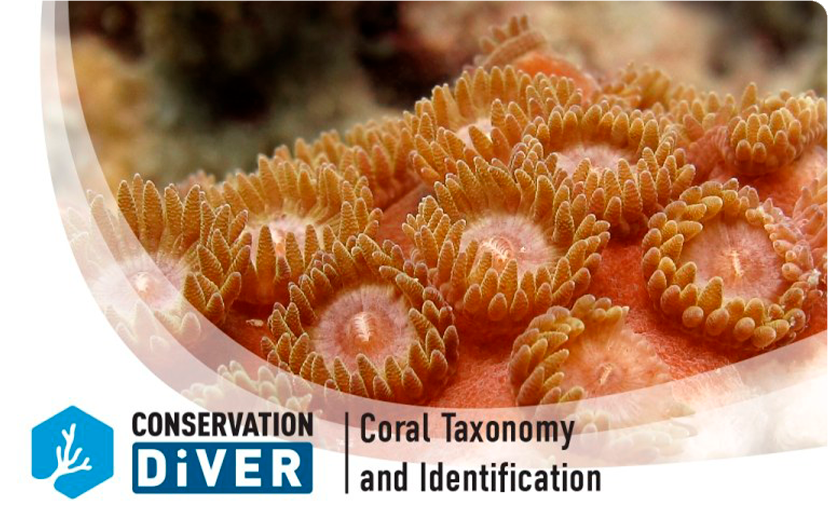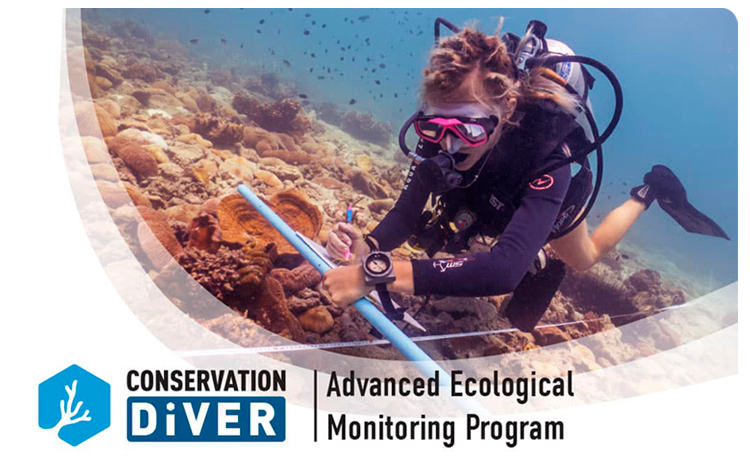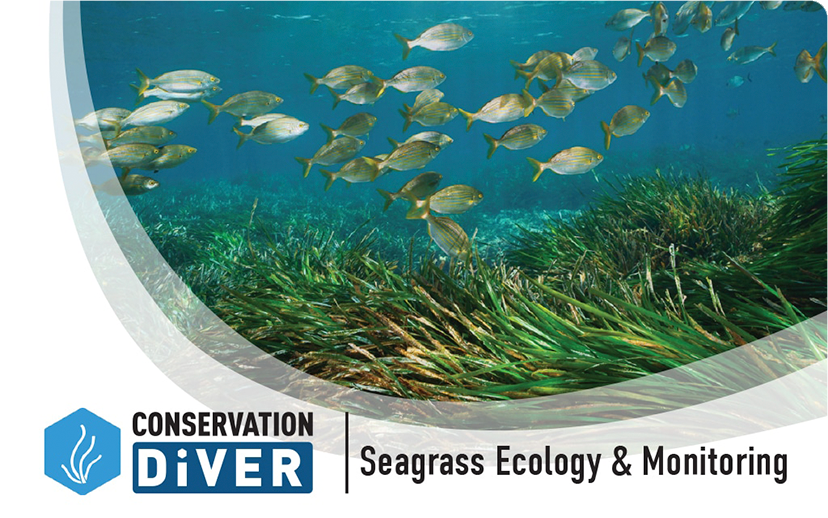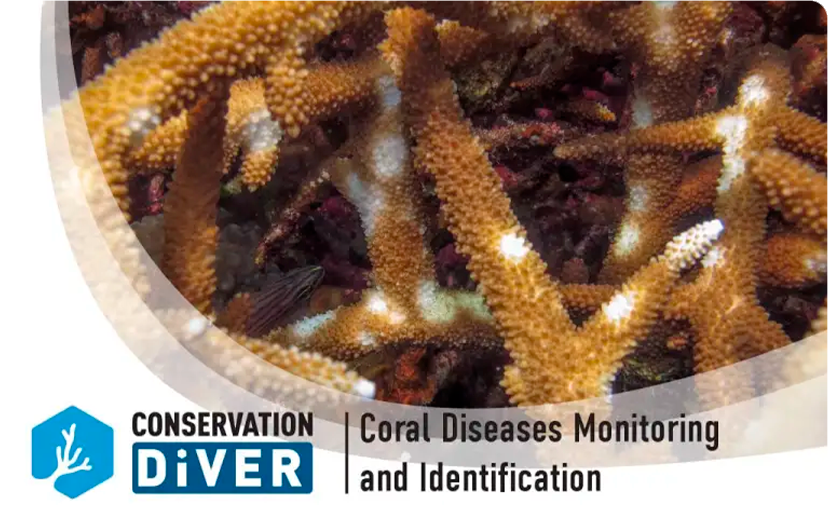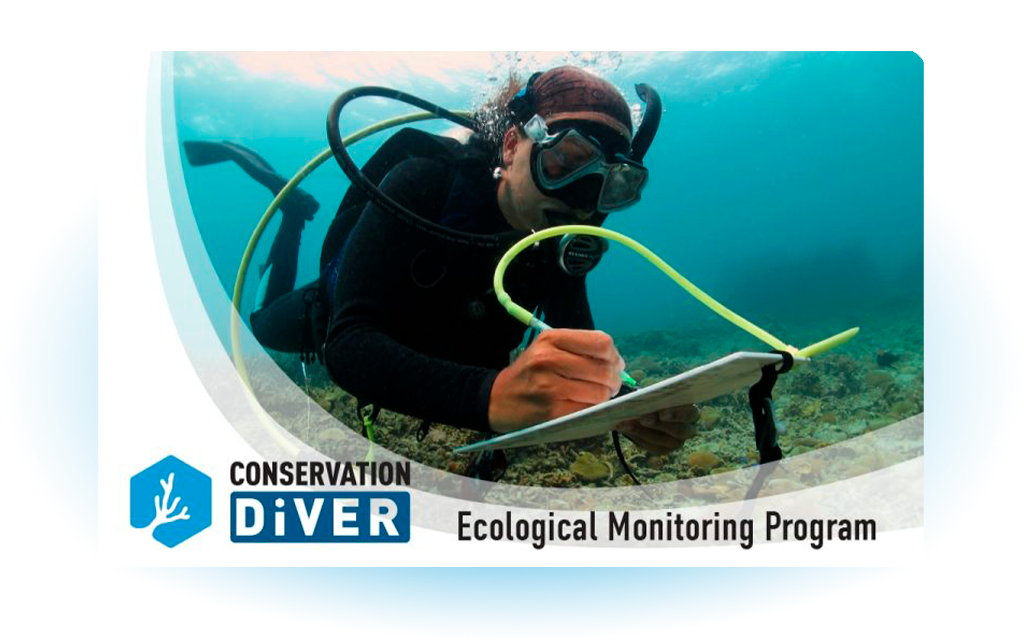
Ecological Monitoring Program
The Ecological Monitoring program is designed to give students an introduction to coral reef ecology and how to view the reef scientifically by assessing key biotic and abiotic reef components. The course teaches students how to use real world scientific sampling and reef survey techniques and certifies them to conduct their own surveys and report data back to the online database. Parameters assessed include fish and invertebrate abundance and biodiversity, substrate cover, coral taxonomy, coral diseases, coral bleaching, and more. This course is a prerequisite for many of the other courses offered by Conservation Diver
Understand coral reef ecology and the challenges they face.
Learn various survey methods used by reef managers to monitor coral reef ecosystems.
Develop skills to identify coral reef invertebrates and vertebrates along permanent transect lines, focusing on diagnostic features.
Learn to assess substrate types, hard coral coverage/growth forms, and coral health, including bleaching.
Program Eligibility and Requirements
To join the Advanced Ecological Monitoring Program, participants need to meet the following criteria:
- Age Requirement: Applicants must be 12 years of age or older.
- Diver Certification: Applicants should hold certification as an Advanced diver from a recognized diving organization such as PADI, SSI, RAID, or similar. Alternatively, Open Water divers can be eligible if they have successfully completed a buoyancy appraisal under the guidance of a professional diver.
- Diving Proficiency: Applicants need to showcase advanced diving skills, including excellent buoyancy control and self-awareness.
- Certifications: Interested individuals must have completed the following certifications offered by our program:
Upon Enrollment in the Course, participants will be required to:
- Attend all knowledge development presentations
- Complete the e-Learning or read and complete chapter reviews for chapters 1-8 in the EMP manual
- Enter records into database
- Perform all three surveys (at least once):
- Invertebrated
- Fish
- Substrate
- Perform a ‘full EMP’ at least once
- Enter data onto data sheets or into the online database
Published papers and reports derived through the teaching of this course
- Population dynamics of corallivores (Drupella and Acanthaster) on coral reefs of Koh Tao, a diving destination in the Gulf of Thailand by Chad M. Scott, Rahul Mehrotra, Margaux Y. Hein, Michelangelo S. Moerland, and Bert W. Hoeksema
- Rare zooxanthellate Nanipora octocoral (Helioporacea) in the Gulf of Thailand by Pau Urgell Plaza, Rahul Mehrotra, Chad M. Scott and James Davis Reimer
- Changes in hard coral abundance and composition on Koh Tao, Thailand, 2006-2014 by Chad M. Scott, Rahul Mehrotra, Madalena Cabral and Sirachai Arunrugstichai
- An update to the list of coral reef fishes from Koh Tao, Gulf of Thailand by Patrick Scaps and Chad M. Scott
